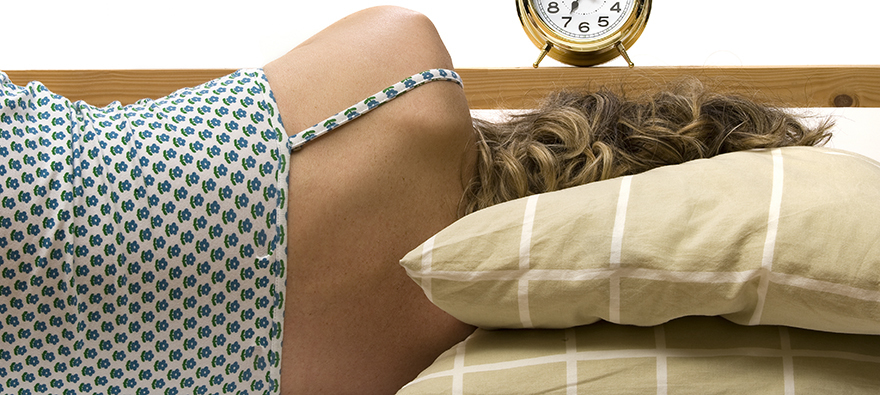The Best And Worst Sleeping Positions Revealed

Not getting enough sleep can leave you feeling fatigued, but what if you’re getting in the hours and still waking up feeling less than fresh? New research has revealed that it might be the way you sleep that’s leaving you run-down. More than four in five (87%) Brits suffer from a range of common physical ailments, with 18% of these diagnosed as sleep-related. 43% of those who suffer are unsure of what the cause is, with symptoms including headaches, neck and back pain, digestive problems and fatigue.
Teaming up with Dr Sarah Brewer MSc, online retailer Furniture Choice can reveal how your everyday niggles and pains may in fact be due to the way you sleep. From snoring to indigestion, many common ailments can be alleviated from changing the position you sleep in.
Sleeping partly on your front, partly on your side with one leg tucked up, is the best position to sleep in as “it is the natural equivalent of the recovery position,” Dr Brewer explains. “This position is great for keeping your airway open, and is the least likely to lead to snoring and joint problems.”
However, only one in ten (9%) tend to sleep this way; in fact, a new survey by Furniture Choice found that the nation favours sleeping on their right hand side, with two in five (40%) picking this as their predominant sleeping position.
While this may seem comfortable, Dr Brewer clarifies it can actually lead to a whole host of digestion related issues:
“The stomach is an asymmetrical organ, and when you lie on your right hand side, stomach acid pools against the valve at the lower end of the oesophagus which can cause reflux and heartburn.” Switching to your left hand side can relieve problems including heartburn, trapped wind and acid reflux. For the one in five (19%) of Brits who struggle with indigestion, this may be an easy way to ease their symptoms.
It’s not just digestion which is affected by sleeping on your side; those who do so are more likely to suffer from hip pain (20%) than adults who sleep in other positions, which is due to the pressure placed on this joint. However, switching to a mattress which is temperature and pressure sensitive can ease these joint pains, Dr Brewer notes.
A third (32%) of the UK suffers with neck ache, as well as upper back pain (19%) and lower back pain (42%). While posture is commonly touted as the cause of these aches, it may actually be that you sleep on your front. “This position compromises the natural curves of the spine, so you are more likely to wake with neck, arm, shoulder or back pain. This will be worse if the height of your pillows cause your head to twist upwards, stressing the ligaments in your neck even further,” Dr Brewer explains.
For those who suffer from back and neck problems, sleeping on your back is best for the spine. Only 6% of Brits sleep this way, although men (9%) are almost twice as likely (5%) as women to do so. This may explain the perception of men being snorers, as this position makes snoring more likely. Dr Brewer explains: “Your relaxed tongue and throat muscles can drop under the effects of gravity to partially block the inflow of oxygen.”
While snoring can be annoying, it may be a sign of the more serious obstructive sleep apnoea. “In some cases, the airway can become completely obstructed, and you can stop breathing for 10 to 30 seconds at a time.”
Dr Brewer points out the tell-tale symptoms of sleep apnoea to look out for:
-
Waking up with a morning headache
-
Waking up feeling drunk , despite having had no alcohol
-
Waking with a frightening sensation of choking or fighting for air
-
Excessive daytime sleepiness and yawning
-
Falling asleep during the day
-
Poor memory
-
Lack of concentration, with thoughts petering out mid-sentence





